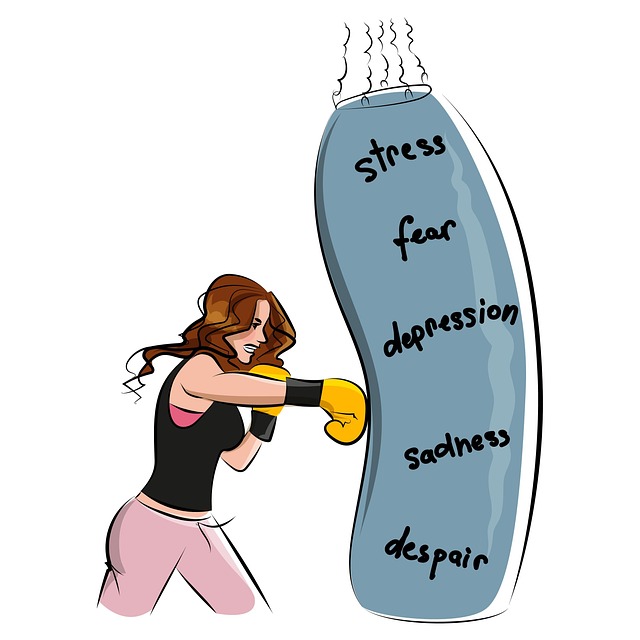Substance abuse often stems from unprocessed trauma, with individuals using drugs as self-medication. Therapy for Somatic Experiencing (SE) offers a holistic approach by addressing mind-body connections and the release of repressed emotions through bodily sensations. This safe, supportive environment facilitates stress reduction, resilience building, and coping skills development, empowering clients to overcome addiction, heal emotionally, and maintain long-term recovery with continuous care and relapse prevention strategies. SE therapy, integrated with practices like Compassion Cultivation and Resilience Building, promotes overall well-being and fosters a substance-free life.
Substance abuse poses significant risks, but understanding the connection between somatic experiencing and addiction offers powerful risk reduction strategies. This article explores effective approaches to mitigate these dangers. We delve into the role of therapy, specifically somatic experiencing techniques, in addressing the root causes of addiction. Additionally, we discuss creating supportive environments, implementing mindfulness practices, and long-term care for sustained recovery. By combining these strategies with professional therapy for somatic experiencing, individuals can navigate their path to a healthier, safer life.
- Understanding the Connection Between Somatic Experiencing and Substance Abuse
- The Role of Therapy in Risk Reduction: A Focus on Somatic Experiencing Techniques
- Creating a Safe Space: Environment and Support Systems for Recovery
- Mindfulness and Stress Management as Proactive Risk Mitigation Strategies
- Long-term Success: Relapse Prevention and Continuous Care
Understanding the Connection Between Somatic Experiencing and Substance Abuse

Substance abuse often co-occurs with traumatic experiences and can be a way for individuals to self-medicate and cope with difficult emotions. Somatic Experiencing (SE) is a therapy approach that recognizes the profound connection between the body, mind, and spirit, offering an innovative perspective on healing. This therapeutic method aims to address the underlying physical and emotional trauma that may be driving substance abuse.
By focusing on the bodily sensations and responses associated with traumatic memories, SE facilitates the release of repressed emotions and promotes healthy coping skills development. The process involves helping individuals become more aware of their body’s signals and learning to regulate their physiological reactions. Through Trauma Support Services, emotional healing processes can be initiated, reducing the reliance on substances as a means of escape or relief. This holistic approach empowers individuals to regain control over their lives and make positive changes, fostering resilience and a deeper understanding of themselves.
The Role of Therapy in Risk Reduction: A Focus on Somatic Experiencing Techniques

Therapy plays a pivotal role in risk reduction strategies for substance abuse, offering individuals powerful tools to navigate and overcome challenging experiences. Among various therapeutic approaches, Somatic Experiencing (SE) techniques have garnered significant attention. SE focuses on the profound connection between the body and mind, recognizing that traumatic or stressful events can leave unseen physical imprints. By facilitating awareness of these somatic memories, therapy helps individuals process and release repressed emotions, leading to reduced cravings and improved coping mechanisms.
Incorporating Stress Reduction Methods, Resilience Building, and Coping Skills Development into SE sessions empowers clients to regain control over their lives. These techniques teach individuals how to regulate their physiological responses to stress, fostering a greater sense of calm and stability. Through this holistic approach, therapy becomes not just a tool for managing symptoms but a catalyst for profound personal transformation, enabling individuals to live more fulfilling and substance-free lives.
Creating a Safe Space: Environment and Support Systems for Recovery

Creating a safe space is paramount for individuals seeking recovery from substance abuse. This involves not just physical surroundings but also cultivating an environment rich in support systems and therapeutic practices. Therapy for Somatic Experiencing, for instance, has proven effective in addressing the deep-seated trauma that often underlies addiction. By focusing on the body’s response to traumatic events, this therapy helps individuals process and release repressed emotions, fostering a sense of safety and stability essential for recovery.
In addition to specialized therapy, stress management techniques and conflict resolution skills are vital tools within one’s support network. Teaching individuals how to navigate high-stress situations without resorting to substance abuse can significantly reduce the risk of relapse. Similarly, learning effective conflict resolution techniques can help mitigate interpersonal tensions that might trigger cravings or lead to detrimental behaviors. Preventing burnout, a common issue in recovery, is another layer of protection; encouraging healthy coping mechanisms and promoting balanced lifestyles support sustained recovery efforts.
Mindfulness and Stress Management as Proactive Risk Mitigation Strategies

Mindfulness and stress management are powerful proactive strategies to reduce risks associated with substance abuse. Incorporating practices like Compassion Cultivation Practices and Resilience Building can significantly enhance emotional well-being, offering individuals a sense of control and balance in their lives. These techniques, often explored through Therapy for Somatic Experiencing, aim to help individuals understand and manage their physical and emotional responses to stress, thus reducing the likelihood of turning to substances as a coping mechanism.
By fostering emotional resilience and cultivating compassion towards oneself and others, individuals can better navigate challenging situations without resorting to substance abuse. These proactive measures promote a holistic approach to well-being, encouraging the development of healthy coping mechanisms that support long-term mental and physical health.
Long-term Success: Relapse Prevention and Continuous Care

For long-term success in substance abuse recovery, relapse prevention and continuous care are essential components. Individuals who have successfully overcome addiction often require ongoing support to maintain their progress. This involves integrating effective therapeutic approaches, such as Therapy for Somatic Experiencing, which addresses underlying emotional and physical trauma that may contribute to cravings and relapses. By focusing on stress management, self-esteem improvement, and mental wellness coaching programs development, individuals can gain valuable tools to navigate challenging situations and prevent future relapse.
Continuous care ensures that recovery is not a one-time event but a lifelong journey. Support groups, aftercare programs, and regular check-ins with healthcare professionals all play pivotal roles in fostering long-term sobriety. These strategies help individuals maintain their mental health, build resilience against stressors, and cultivate a strong support network—crucial elements for sustained recovery and improved overall quality of life.
In addressing substance abuse, a multi-faceted approach is essential. By combining therapy focused on somatic experiencing techniques with supportive environments and proactive stress management, individuals can effectively reduce risks and achieve long-term recovery. These strategies not only provide tools to cope with underlying issues but also foster a sense of safety and well-being, crucial for sustained abstinence. For those seeking help, accessing tailored therapies like somatic experiencing and building robust support networks can be transformative, paving the way for a brighter future free from substance abuse.














